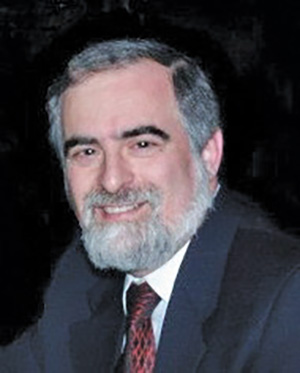
Almost every discussion about preparing a will, trust or other estate planning documentation begins with “I know I/we should do this, but…” followed by some very logical explanations for why it hasn’t happened yet. And eventually, most of the time, for those who truly need to do it, a legal professional is retained, documents are prepared and signed. A sigh of relief follows, knowing what should have been done a while ago can finally be checked off the list.
And then, all too frequently, the plan is either left incomplete, or lost. Just because the documents have been signed (that’s Step 1), doesn’t mean your estate plan is finished. You still have two steps left.
Step 2: Complete the transfers.
In many cases, you will need to transfer ownership or retitle assets to match the estate plan’s directives.
An internet search with the phrase “failure to transfer assets in an estate plan” produces a cascade of commentary from law firms. Here are comments from the first three hits: “The most common estate planning omission I encounter is the failure to transfer probate-type assets to a revocable trust.” “Sometimes people fail to transfer some or all of their intended trust assets into their trust.” “Many people will use a revocable trust as their primary estate-planning document but fail to fund the trust.”
And of course, just in case there is any doubt that this job is on you, there’s a disclaimer: “It should be understood that it is not your attorney’s responsibility to fund the trust unless this was stated in the fee agreement.”
Transferring or retitling assets isn’t difficult, but it can be tedious, especially if there are a lot of accounts to be changed. And getting the details right is essential. If necessary, get professional assistance. But complete the transfers.
Step 3: Make sure the plan can be found.
After executing the agreements and taking the time to retitle assets, it seems obvious most people would make sure their plans are readily accessible at their deaths. But ask any financial professional, and they probably have a story about heirs or executors being unable to locate estate documents. As personal finance writer Glenn Ruffenbach remarked in a February, 2018, Ask Encore column…
“One of the most important things about an estate plan and associated documents is remembering where they are.”
Several circumstances common in later life can be a catalyst for misplaced estate plans. Individuals may not consolidate their affairs in one physical location. Important papers get tossed in a desk drawer, locked in a safe, stashed in a safe deposit box, and while someone knows where some things are, no one knows where everything is.
Relocations—to a condo, apartment or retirement facility—can disrupt previous orderliness. Cardboard boxes with vague descriptions are stacked in closets, or stowed in an adult child’s basement, and finding the documents becomes a treasure hunt.
Third, diminished mental capacity may affect recall. The reality of estate plans is that most provisions are executed after the death of the grantors, but there may a period when the grantors are still alive yet less competent in the management of their affairs. This is a moment of great vulnerability for the estate.
There are several practical measures to ensure that estate plans are protected and can be retrieved.
- • Make copies, including electronic ones. The gold standard for document redundancy is the original, a paper copy and two digital copies, one on a portable device (like an external hard drive), and the other on a cloud-based storage system. Many financial service companies offer their clients complimentary access to a digital vault, where important documents can be stored securely in an electronic format. Keep the paper original in a consolidated file, and give the paper copy to an executor for safekeeping.
- • Prepare a brief letter of instruction for heirs and executors, informing them of the location and/or contact information for your documents, accounts, financial professionals and passwords. You don’t want to provide details in the letter, just instructions on how to access this information when the time comes.
Review and update this letter once a year—on January 1, a birthday or anniversary, or whenever you have a review with your financial professionals. Instruct the recipients of the current letter to contact you if they don’t get their annually updated version. This routine will prompt you to remain engaged with your estate plans. Not doing it can be an alert to your heirs or executors to check on your well-being, both physical and financial.
- • Designate professional support today. Even if heirs and executors can locate your plans, they are probably going to need professional assistance in liquidating or transferring assets, settling obligations, paying taxes and completing other transactions. A trusted professional who has established a personal relationship with you and your heirs can continue to look to your best interests, even after you have passed.
Material discussed is meant for general informational purposes only and is not to be construed as tax, legal or investment advice. Although the information has been gathered from sources believed to be reliable, please note that individual situations can vary. Therefore, the information should be relied upon only when coordinated with individual professional advice.
Elozor Preil is a registered representative and financial advisor of Park Avenue Securities LLC (PAS), 355 Lexington Avenue, 9 Fl., New York, NY 10017, 212-541-8800. Securities products/services and advisory services are offered through PAS, a registered broker/dealer and investment adviser. Financial Representative, The Guardian Life Insurance Company of America (Guardian), New York, NY. PAS is an indirect, wholly owned subsidiary of Guardian. Wealth Advisory Group LLC is not an affiliate or subsidiary of PAS or Guardian.
PAS is a member FINRA, SIPC.
By Elozor Preil
Neither Guardian, PAS, Wealth Advisory Group, their affiliates/subsidiaries nor their representatives render tax or legal advice. Please consult your own independent CPA/accountant/tax adviser and/or your attorney for advice concerning your particular circumstances.










